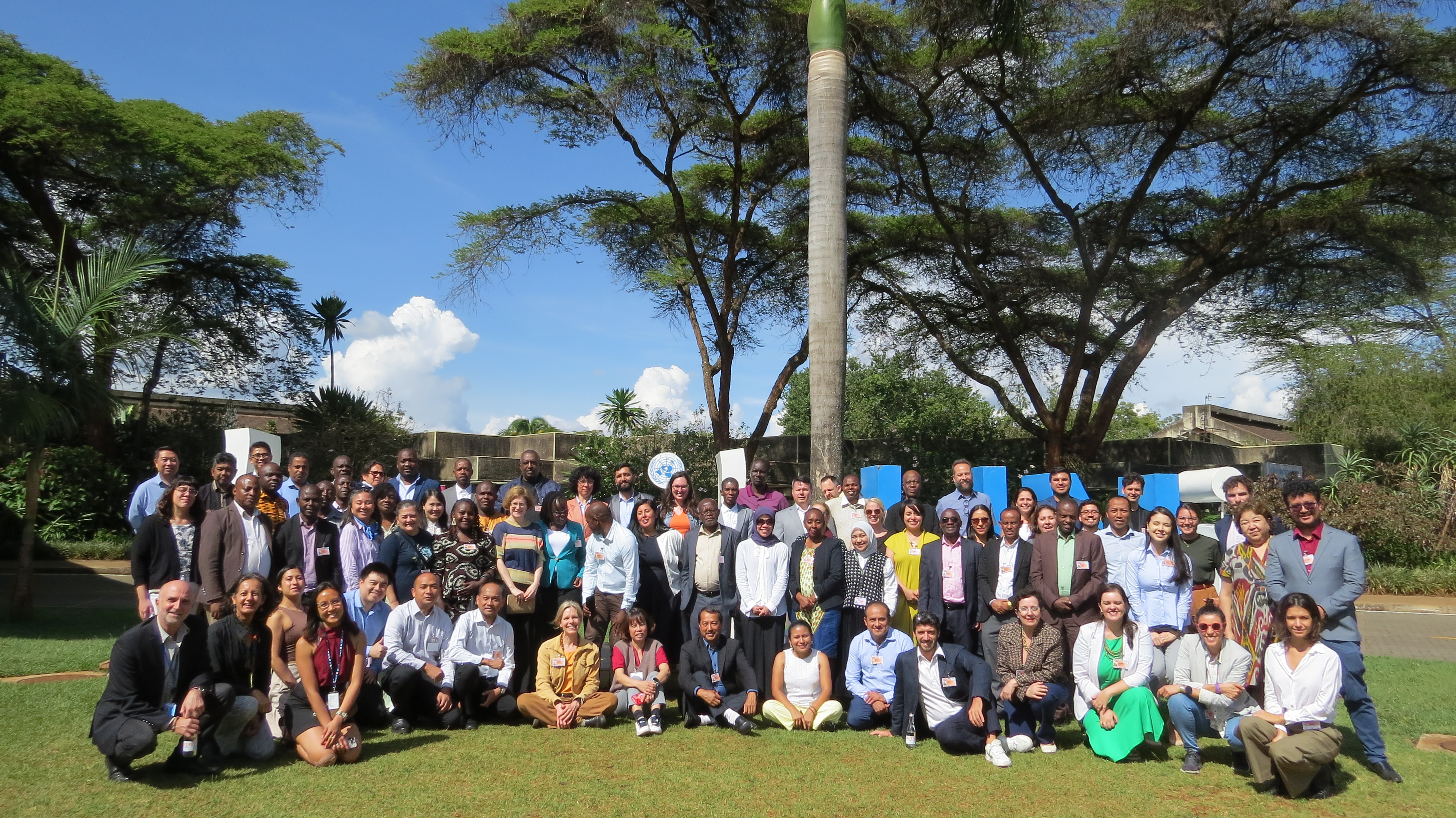Representatives from 17 forest countries, alongside experts from UNEP, UNDP, FAO under the UN-REDD Programme and the World Bank, convened from March 19 to 21 2025 in Nairobi, Kenya, for a global exchange on REDD+ benefit sharing mechanisms. The participating countries, which included Brazil, the Democratic Republic of the Congo (DRC), and Indonesia, collectively account for some of the world's largest tropical forest areas.
Benefit sharing mechanisms play a crucial role in ensuring that the gains from natural resources, conservation efforts, and climate initiatives like REDD+ follow equity, effectiveness and efficiency principles, as well as include adaptable, accountable, transparent, and right-based approaches. The Nairobi exchange underscored the need to strengthen these mechanisms to promote fair and effective climate finance distribution while advancing global forest conservation efforts and sustainable development.
Over the three days, the event facilitated knowledge-sharing among policymakers, technical experts, and Indigenous Peoples and local community representatives, focusing on practices, challenges and practical solutions. Participants also had the opportunity to observe benefit sharing arrangements in practice during a visit to Nairobi's Karura Forest.
‘This workshop was an eye-opener for Ugandan participants to an extent that we now appreciate benefit sharing as a core ingredient for the effective delivery of benefits for Indigenous Peoples and local communities. This is especially important as we implement carbon projects, and increasingly recognize that the benefits beyond carbon referred to as co-benefits are critical.’
Bob Kazungu | National REDD+ Focal Point for Uganda
During the exchange, participants identified key elements essential for effective benefit sharing mechanisms. These included the establishment of clear legal frameworks to define rights and responsibilities, and ensure equitable distribution of benefits. Strengthening institutions with diverse stakeholder representation was highlighted as crucial for managing funds transparently and making informed decisions.
Participants also emphasized the importance of inclusive processes, fostering trust through participatory consultations that reflect diverse perspectives. Simplicity in design was recognized as a vital factor, ensuring that both monetary and non-monetary benefits are clearly structured to enhance accountability and efficiency. Lastly, there was a shared sense of urgency to accelerate the implementation of benefit sharing mechanisms, ensuring that communities engaged in conservation efforts receive timely recognition and support.
Countries and Indigenous Peoples and local communities' representatives also highlighted several challenges, including the difficulty of conveying to communities the long-term advantages of benefit distribution at the village level rather than direct household payments. Other challenges include integrating additional ecosystem services, addressing land tenure issues, and managing complex consultations. Regulatory gaps for carbon rights and the reluctance of some stakeholders to engage in benefit sharing mechanisms were also noted. To address these, the participants emphasized the need for clear and inclusive policies, legal and institutional frameworks, capacity-building, and inter-ministerial coordination. Transparent communication, grievance redress mechanisms, and sustainable economic activities were highlighted as crucial next steps to enhance credibility, participation, and long-term impact.
‘This exchange marks an important step in fostering dialogue, connecting countries, and setting priorities for the path ahead. Country representatives will continue discussions and knowledge-sharing through the REDD+ Academy ’
Mirey Atallah | Chief of the Adaptation and Resilience Branch within UNEP's Climate Change Division, referring to the online knowledge platform.



